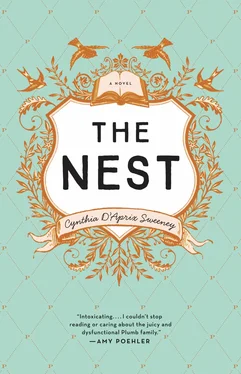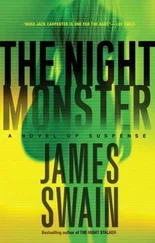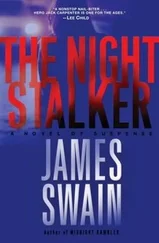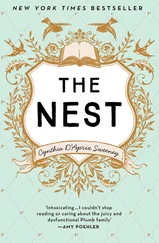“What are you doing in here?” Tommy said. Jack looked up to see Tommy standing in the doorway, a stained and wrinkled Post-it in his hand. He looked pissed.
“I was admiring your piece,” Jack said. “It’s a good casting. Where did you get it?”
“It was a gift.” He handed Jack the paper. “Here’s Stephanie’s number, the phone’s in the front hall.”
“What happened to it?”
“It sustained some damage during an unfortunate incident.” Tommy pointed to the front hall, but Jack could see his hand tremble a bit. “Phone’s in there.”
“What kind of accident?”
“Fire.”
“The scratches didn’t come from a fire, though,” Jack said, walking around the sculpture. “And for bronze to actually melt, the fire would have to be incredibly hot, incredibly strong.”
“Yeah, well I’m an ex-firefighter,” Tommy said. “I’ve seen fire do some pretty unbelievable things.”
“So you recovered this from a fire?”
“That’s not what I said,” Tommy said.
Jack squatted and knelt before the statue “Did you say this was a gift?”
Tommy walked to the front hall, praying Jack would follow him. Now he was the one with telltale sweat on his upper lip and brow. What had he been thinking, letting this guy into his house? “I’m calling Stephanie for you right now,” Tommy said.
The damage to the statue was tugging at Jack; something about it felt significant. He started to feel a familiar tingling in his fingers and at the back of his neck, a feeling he’d learned to trust when trolling through flea markets and estate sales and antique shows, a little tick tick tick that alerted him he might have found something of value among the piles of crap. In the front hall, Tommy was standing with the receiver to his ear. Jack stepped out of Tommy’s line of sight and quickly took a few surreptitious pictures of the cast with his phone.
“No answer,” Tommy said. “I’ll tell them you stopped by. If there’s nothing else I can do for you—”
“Nothing else,” Jack said, walking into the front hall, eager now to get home and make a few calls. “You’ve been very helpful.”
Tommy opened the door. Jack gave a quick wave to the dog who was standing like a sentry next to Tommy and who followed him as he walked down the short path and unhooked the gate. As the gate clicked behind him, he turned and bent a little at the waist, referencing the only Frank Sinatra tune he could summon. “I’ll be seeing you, Frank,” he said, causing the dog to growl and leap up and bark madly at Jack’s back until he was completely gone from sight.
The first few weeks Tommy had The Kiss, he’d been elated. He couldn’t believe how easy it was to procure (that’s how he thought of it when he was forced to assign a verb to his actions: procure ). The sculpture had appeared on his very last day of working the pile at the World Trade Center site, early April 2002. By that time, Tommy had been working the pile for seven straight months, since the early hours of September twelfth. As a retired firefighter (his lower back had betrayed him once and for all years earlier), he was one of the first to be cleared to work rescue and recovery. The cough he’d developed somewhere around week six was only getting worse and his daughter Maggie was apoplectic about him going there every day.
“Ma would have hated this. She would’ve wanted you to take care of yourself, to be here for me and my sisters, for your grandchildren,” she’d say, pushing more and more food in front of him. She’d taken to feeding others (everyone except herself) with an alarming zeal over the past seven months. She’d cook all day, layering the freezer with pans of lasagna and enchiladas, containers of chili and homemade soup, more than the family could possibly eat. Her hands were in constant motion. If she wasn’t cooking, she was scrubbing a pot or polishing flatware or zealously wiping down counters as if she were eliminating scurvy from a dangerously filthy ship. The furrow between her eyes never disappeared now. She’d delivered his first grandchild three months earlier and had already dropped the pregnancy weight and then some; there was a new slackness to her jawline. Her pretty brown eyes, always so engaged and eager, were often watery and bloodshot and unfocused. “You’re working yourself into your grave,” Maggie told her father.
“Poor choice of words,” Tommy said, trying to keep his voice light instead of bitter.
“You know what I mean, Dad.”
Tommy knew. He showed up at the pile every day because it was his wife’s grave, as much of a grave as she’d ever have anyway. Ronnie had been an office manager for a financial services company on the ninety-fifth floor of the north tower of the World Trade Center. Before the planes hit that morning, Tommy and Ronnie had passed each other in the outdoor concourse between buildings, as they did many days when Tommy was heading home from the occasional late-night security guard shift and Ronnie was arriving. She was supposed to be off that Tuesday but had decided to go in and help her boss clear out a backlog of files.
“I’ll take an extra day next week,” she’d told Tommy. “I’ll enjoy it more if I get this work out of the way.” They’d kissed in the lobby, talked about what to do for dinner. “Load the dishwasher,” she’d said, giving him a little squeeze on his upper arm.
“Roger,” he’d said. She’d smiled and rolled her eyes a little; they both knew he’d forget. He was tired after working all night but not too tired to notice her short skirt, how fine and high her ass looked beneath the center seam of the gray wool, how shapely and firm her legs were after three daughters and, soon, a grandson.
Through the excruciating hours and days and weeks following that morning, he’d thought repeatedly about that moment: Ronnie’s long, strong stride in the bright morning sun, how those legs should have carried her down to safety, how he should have been there to catch her. He remembered the shoes she wore that day, red patent leather with a little cutout for the toes. She always wore sneakers to commute from their house in the Rockaways, but would stop in the concourse lobby to slip on her heels. She cared about things like that.
“Appearances count,” she would tell their kids. “If you want people to judge you based on the inside, don’t distract them from the outside.”
His eyes had followed her that morning as she’d walked to the elevators. He would always be grateful for that, at least, how he’d stopped and admired the little sway of her derriere, watched her swipe her employee ID, press the up button for the elevator, gently tug at the hem of her skirt. How his heart had softened thinking what a fierce specimen of a woman she was, how lucky that she belonged to him.
“Mom would have hated you going there every day,” Maggie told him repeatedly in the following months. “She would have hated you putting yourself at risk.”
Tommy didn’t care what Ronnie might have thought of his days spent digging through the pile, but the concern on his daughter’s face wore on him. Her husband had pulled him aside recently to delineate how poorly she was still sleeping, the frequency of her nightmares and crying jags. How her grief had transmuted from her mother’s absence to fear for her father’s health, a sticky certainty that he was using the pile to slowly kill himself and that he wouldn’t even live to see his first grandson’s first birthday. Maggie repeatedly asked Tommy if he’d help with the baby so she could go back to work part time. He knew the request was just her way of trying to get him away from the site. With the cleanup only weeks away from being finished, he decided to give notice and help with his grandson to give Maggie and her two sisters some peace of mind. They deserved it.
Читать дальше
Конец ознакомительного отрывка
Купить книгу












